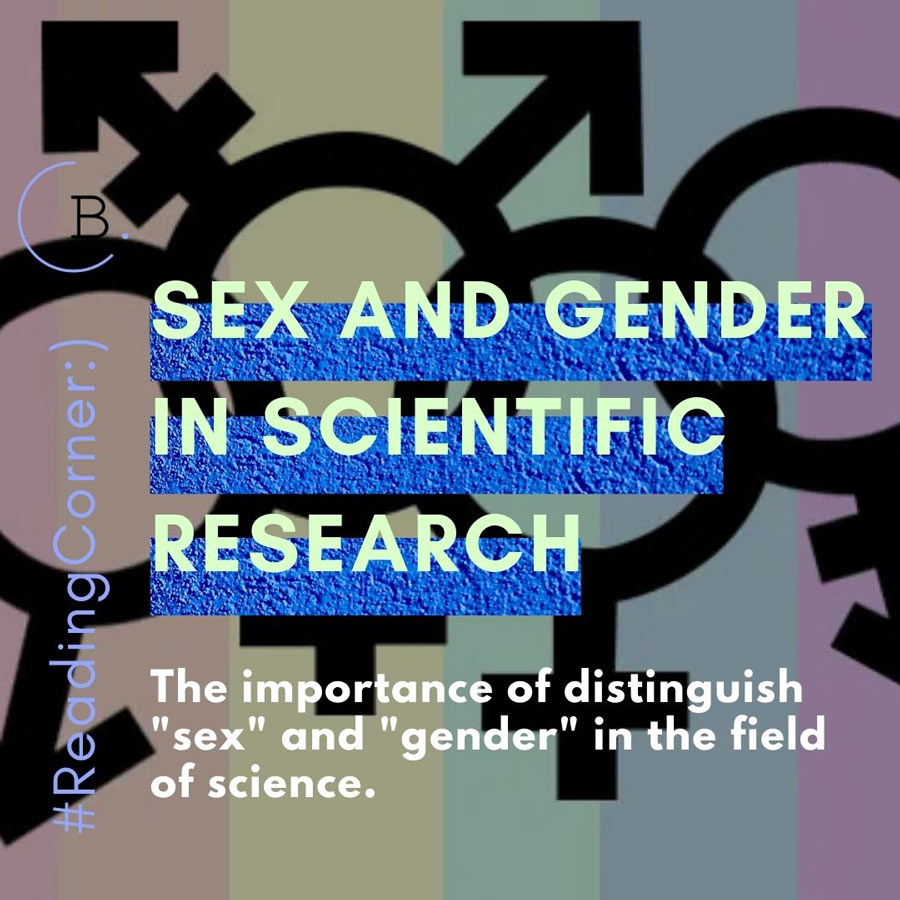It is very common to confuse the words “sex” and “gender” and use them as if they were synonyms, when dealing with different aspects.
Sex: Refers to a set of biological attributes in humans and animals that depend on chromosomes, hormone levels and reproductive anatomy.
Gender: It is a social construction that refers to expressions of behavior and social roles that intersect with sex.
Gender identity: It is the perception that a person has about his/her own gender and it may be that it does not correspond to his/her biological sex. It can be classified as men, women, gender fluid or non-binary.
And this error of definition also affects the scientific field. In 1970s, the word “gender” was introduced in English as an alternative to “sex” to counteract the biological determinism that permeated scientific language. As a way to differentiate the socially constructed aspects between men and women (gender) from biological aspects (sex).
The health of both sexes is influenced by biological factors, sexual differences are observed in anatomy and physiology. We find chromosomal differences that lead to sexual differentiation and somatic development. In addition, there are treatment differences due to sex in both the pharmacokinetics and pharmacodynamics of drugs that often vary according to sex and this can influence the side effects that they produce.
But socially constructed gender characteristics are also determining factors for people’s health. This influences the physical and social environments to which the individual is exposed. Their access to resources, medical care, treatment and the fairness of research. We cite some examples below, inequality in resources has detrimental effects mainly on the well-being of women; in the case of men, there are underdiagnosed problems due to the characteristics that are considered “masculine” (they tend to endure pain longer so as not to ask for help); but in other pathologies, such as cardiac ones, men are diagnosed better than women.
When the word “gender” entered the scientific literature, it sometimes did so with its meaning and others as a substitute for “sex”, used interchangeably. The result is that analyzes have been written on why it is important to distinguish between these two terms as research has been hampered by a lack of conceptual clarity. Both, sex and gender, affect molecular and cellular processes, responses to treatments, health and disease.
Therefore, we need greater awareness of terms “sex” and “gender” in medical research. Science will only be clear and much more precise when these words are included and properly used.
References:
Lee, S. K. (2018). Sex as an important biological variable in biomedical research. BMB reports, 51(4), 167.
Mollayeva, T., El-Khechen-Richandi, G., & Colantonio, A. (2018). Sex & gender considerations in concussion research. Concussion, 3(1), CNC51.
Rich-Edwards, J. W., Kaiser, U. B., Chen, G. L., Manson, J. E., & Goldstein, J. M. (2018). Sex and gender differences research design for basic, clinical, and population studies: essentials for investigators. Endocrine reviews, 39(4), 424-439.



